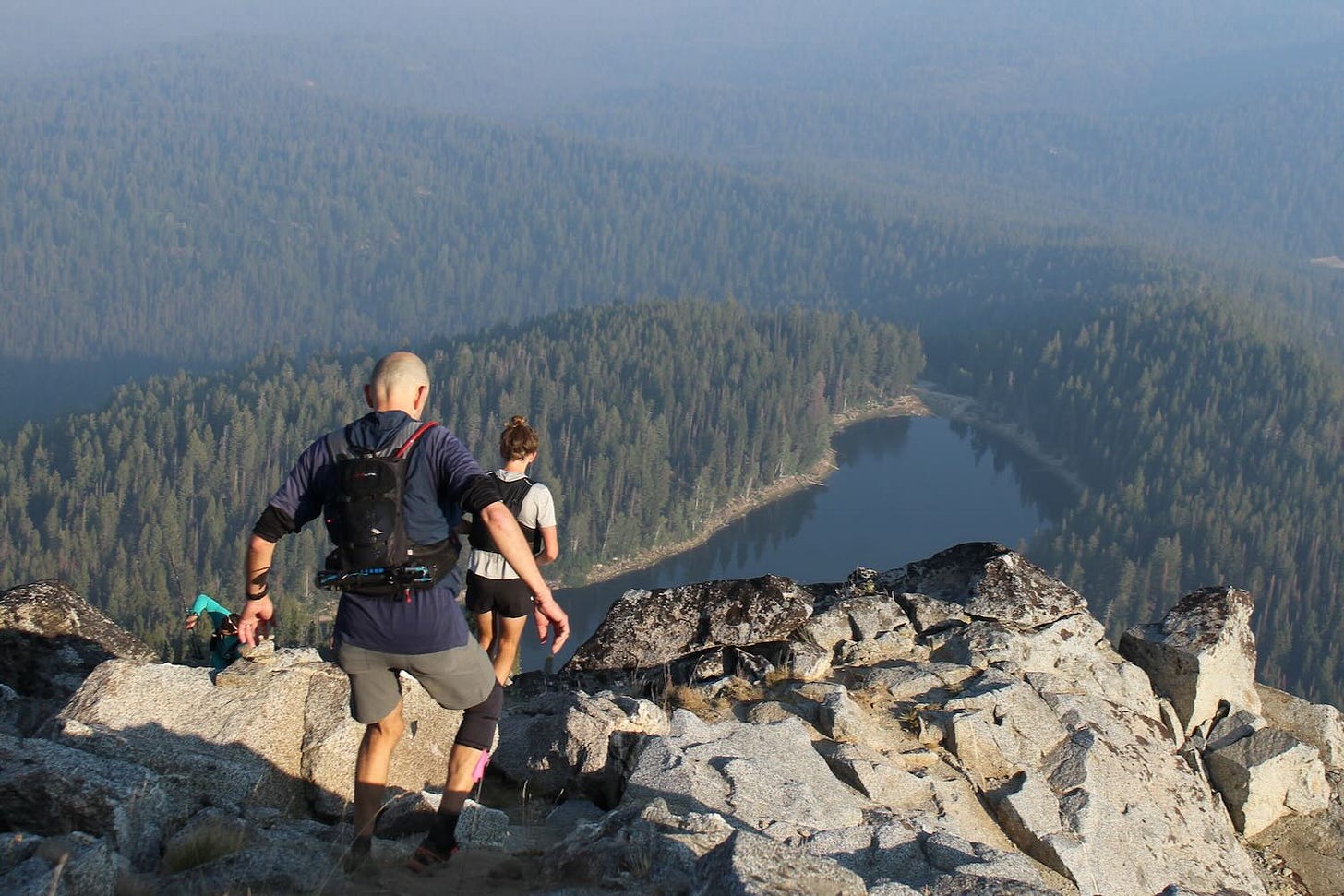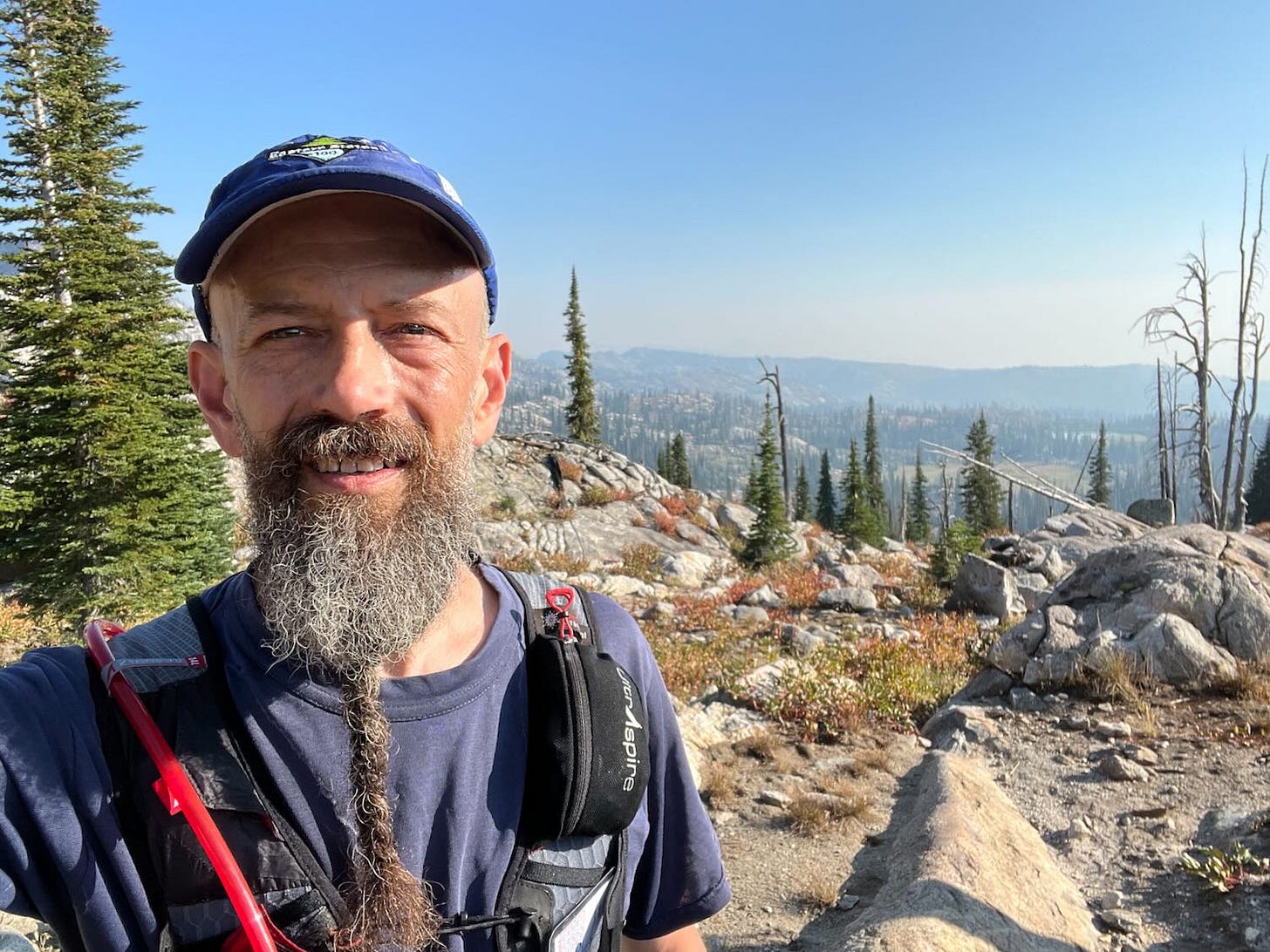Running Fixes Things
Not everything, but it's almost always better to keep moving forward
Running fixes things.
It’s a simple statement that can apply to our physical, mental, emotional, and spiritual wellbeing. It’s also a broad philosophy that I could take in many directions, literal and metaphoric.
Today, though, I’m thinking of it as a physical truth and a problem-solving approach to physical ailments.
To illustrate…
Two weekends ago, I ran a hundred-mile trail race in the rugged mountains of the Salmon River range in west-central Idaho. I started the race with two persistent injuries that had been with me for over two months — a sore foot from a twisted, pinched landing between rocks that strained a metatarsal, and a flare-up of knee tendinitis. In an attempt to be ready for this race despite these issues, I modified my training, lowered my mileage, chose easier surfaces, less climbing, gentler running… all in the interest of giving these injuries a chance to heal. But none of that seemed to help much, and going into the race, I didn’t know if my foot or my knee would hold up.
They did.
And even though the race wasn’t one my best performances (that modified training plan left me under-prepared for a race with over 20,000 feet of ascent on fairly technical terrain), I ran well and neither of those nagging injuries hobbled me.
In fact, in the days after the race, when I should have been limping around as a result of the abuse I’d just given myself, I found that both injuries had disappeared. Not just lessened, not slowly fading from notice — they were gone. Healed, fixed. I was healthier, and more mechanically sound the day after the race than the day before it.
It doesn’t make sense — I know that. But this is not the first time, and my inability to explain it doesn’t make it less real.
So I go back to my opening statement: running fixes things.
My theory is that what I just called “abuse” was actually “use” — the kind of hard and heavy use we’re designed for. Maybe my poor pampered foot needed to be banged around a bit, called into full service. Maybe my knee needed to know that I still trust and depend upon it.
And it could be this is just another illustration of the fact that much of our modern weakness and fragility is acquired, that we are born with the potential for much greater durability and range than we allow to develop in our sheltered modern lives, that pampering and pain avoidance and pleasure seeking is not a good long-term cure for anything.
Biking probably fixes things, too. And walking, and swimming, and climbing, and paddling… it might be that it isn’t the specific modality that brings forth the magic, it might that any kind of active physical engagement with the world does it. Or it might be the underlying principle that given the option, it is almost always better to keep moving forward into a challenge, rather than avoiding it or surrendering to it.
This is not medical or moral advice.
At most, I guess it might be lifestyle advice, but mainly it’s just my personal observation of my own experiment of one. And of course running doesn’t fix everything. It has at least the potential to make a lot of things better, and it’s a pretty good default setting, but I suggest that you should still probably listen to your doctor (though skeptically) and you should still listen closely to your body — tune in to it, consider making accommodations for it.
But I also suggest: don’t forget who’s in charge here.
It is definitely not your doctor, and it probably shouldn’t be your body, or at least not your perception of how your body is feeling in any particular moment. Our bodies have brought us far, helped us earn our spot as apex predators, but it is our minds and our will that make us fully human.




